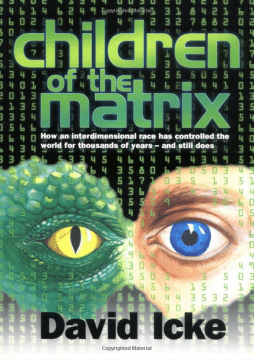by Dwight Furrow
 One of the more remarkable developments in popular philosophy over the past 20 years is the rebirth of stoicism. Stoicism was an ancient Greek and Roman philosophy founded around 300 BCE by the merchant Zeno of Citium, in what is now Cyprus. Although, contemporary professional philosophers occasionally discuss Stoicism as a form of virtue ethics, most consider it to be a minor philosophical movement in the history of philosophy with limited influence. Yet it has captured the attention of the non-professional philosophical world with many websites and online communities devoted to its practice. Some estimate membership in these communities at about 100,000 participants. Stoicism has also played a seminal role in the development of cognitive/behavioral therapy in psychology.
One of the more remarkable developments in popular philosophy over the past 20 years is the rebirth of stoicism. Stoicism was an ancient Greek and Roman philosophy founded around 300 BCE by the merchant Zeno of Citium, in what is now Cyprus. Although, contemporary professional philosophers occasionally discuss Stoicism as a form of virtue ethics, most consider it to be a minor philosophical movement in the history of philosophy with limited influence. Yet it has captured the attention of the non-professional philosophical world with many websites and online communities devoted to its practice. Some estimate membership in these communities at about 100,000 participants. Stoicism has also played a seminal role in the development of cognitive/behavioral therapy in psychology.
The puzzle is why Stoicism is now having its moment—because it is genuinely weird.
To be sure, Stoic ethics gives some good advice. One central tenet is that we place far too much value on external things such as wealth, popularity, or prestige at the expense of moral virtue. In an age of celebrity worship, groveling for likes on social media, and a mad dash for cash, none of which does much to promote happiness, we could surely use more focus on what really matters in life. But this sort of advice isn’t unique to Stoicism. It is hard to imagine any mainstream ethical theory not condemning our fascination with bling, careerism, and greed. Nevertheless, the Stoic reasoning on these ethical matters is distinctive and important because it deeply shapes the practical advice that has made it so popular. Read more »

 Among the ideas in the history of philosophy most worthy of an eye-roll is Aristotle’s claim that the study of metaphysics is the highest form of eudaimonia (variously translated as “happiness” or “flourishing”) of which human beings are capable. The metaphysician is allegedly happier than even the philosopher who makes a well-lived life the sole focus of inquiry. “Arrogant,” self-serving,” and “implausible” come immediately to mind as a first response to the argument. It’s not at all obvious that philosophers, let alone metaphysicians, are happier than anyone else nor is it obvious why the investigation of metaphysical matters is more joyful or conducive to flourishing than the investigation of other subjects.
Among the ideas in the history of philosophy most worthy of an eye-roll is Aristotle’s claim that the study of metaphysics is the highest form of eudaimonia (variously translated as “happiness” or “flourishing”) of which human beings are capable. The metaphysician is allegedly happier than even the philosopher who makes a well-lived life the sole focus of inquiry. “Arrogant,” self-serving,” and “implausible” come immediately to mind as a first response to the argument. It’s not at all obvious that philosophers, let alone metaphysicians, are happier than anyone else nor is it obvious why the investigation of metaphysical matters is more joyful or conducive to flourishing than the investigation of other subjects.







 Baseball has always been a thinking person’s game. Like cricket, it seems able to offer an infinite variety of complicated situations demanding subtle analysis, and these are deliciously frozen for everyone to consider and reconsider during the tense, drawn out intervals between moments of active play. Moreover, although afficianados know the rules well, novel problems can always arise. One such puzzler, amusing and thought-provoking, arose in a 2018 game between
Baseball has always been a thinking person’s game. Like cricket, it seems able to offer an infinite variety of complicated situations demanding subtle analysis, and these are deliciously frozen for everyone to consider and reconsider during the tense, drawn out intervals between moments of active play. Moreover, although afficianados know the rules well, novel problems can always arise. One such puzzler, amusing and thought-provoking, arose in a 2018 game between Someone else gets more quality time with your spouse, your kids, and your friends than you do. Like most people, you probably enjoy just about an hour, while your new rivals are taking a whopping 2 hours and 15 minutes each day. But save your jealousy. Your rivals are tremendously charming, and you have probably fallen for them as well.
Someone else gets more quality time with your spouse, your kids, and your friends than you do. Like most people, you probably enjoy just about an hour, while your new rivals are taking a whopping 2 hours and 15 minutes each day. But save your jealousy. Your rivals are tremendously charming, and you have probably fallen for them as well. So goes a popular snippet from Seinfeld. In a 2014 article in The Guardian titled “Smug: The most toxic insult of them all?” Mark Hooper opined that “there can be few more damning labels in modern Britain than ‘smug.'” And CBS journalist Will Rahn declared, in the wake of Donald Trump’s 2016 electoral victory, that “modern journalism’s great moral and intellectual failing [is] its unbearable smugness.”
So goes a popular snippet from Seinfeld. In a 2014 article in The Guardian titled “Smug: The most toxic insult of them all?” Mark Hooper opined that “there can be few more damning labels in modern Britain than ‘smug.'” And CBS journalist Will Rahn declared, in the wake of Donald Trump’s 2016 electoral victory, that “modern journalism’s great moral and intellectual failing [is] its unbearable smugness.”